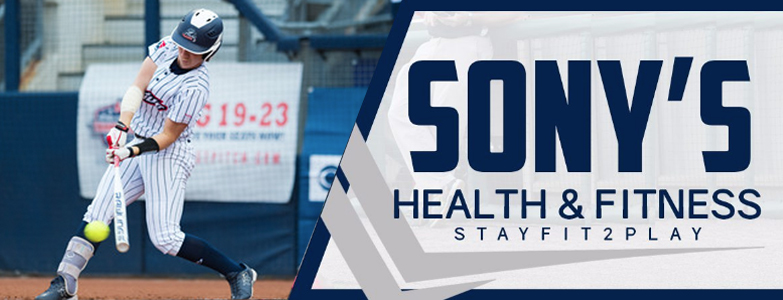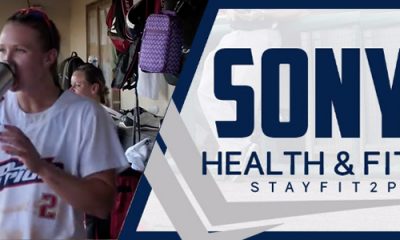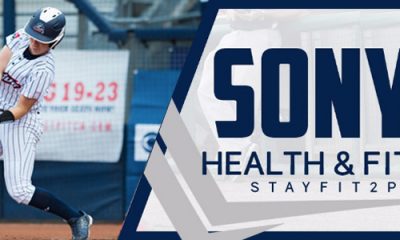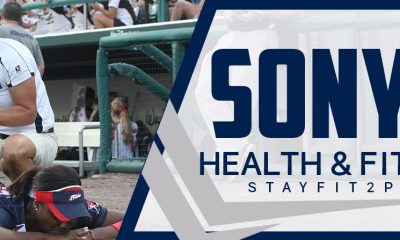
Viera, FL-October 26, 2017- Everyone constantly hears how important sleep is to an average person’s functioning. However, for athletes, sleep can have even more of an impact on their ability to perform. On average, most elementary children need at least 10 to 11 hours of sleep per night and adolescents need at least 9 to 9 and half hours of sleep (Mindell JA & Owens JA (2003). The reality is most adolescents and younger children are not getting the suggested minimum hours of sleep to function in every day life. Participating in sports can complicate the already full schedule of most adolescents with academic and social demands. This daily schedule can take a toll on younger athletes and they forego hours of sleep in order to complete all of their daily tasks. In an effort to understand sleep effects on athletes, researchers at Stanford University’s Sleep Disorders Clinic and Research Laboratories have been conducting performance studies on their collegiate Men’s basketball team while monitoring amounts of sleep. In this one study alone researchers correlated lack of sleep to a decrease in reaction time, and poor decision-making. Stanford Men’s Basketball team found that by adding hours of additional rest into their player’s schedule, they were more productive in practice and games, and increased their reaction time by 36ms (Mah et al., 2011).
One researcher at Standford, Cheri Mah, expanded her study and looked at professional basketball athletes in the NBA since their schedule can be much more vigorous than college basketball. The NBA is a great overall model to look at when it comes to how taxing a season can be with around 82 games in total and having around 4 to 5 games in a span of 7 days. Any athlete that faces a schedule so taxing will become at risk for developing chronic sleep loss leading to a delay in reaction time of around 45 ms which is equivalent to what the law describes as legal intoxication (Williamson & Feyer, 2000). Reaction time is crucial in sports such as tennis, basketball, football, and baseball where a millisecond can be the difference in success and failure. Inadequate sleep will also impact an athlete’s alertness, decision-making, and performing sport specific skills (Reilly & Edwards, 2007). There has also been some correlation to a decrease in performance with maximum efforts especially when chronic sleep loss has been established (Reilly & Edwards 2007). Chronic sleep loss will lead athletes to be in what is known as a “sleep debt” where the lack of sleep accumulates negatively. One way to combat this behavior is to plan shorter periods of rests throughout the day such a naps (Reilly & Edwards, 2007). Restricting the amount of time the athlete naps to around 30 minutes will increase alertness and cognitive skills without the feeling of grogginess due to deep REM sleep. Most athletes should make napping a part of their daily routine to help accumulating sleep towards the debt they accumulate with their daily schedule and inability to get the required number of hours of sleep at night. Cheri Mah implemented this strategy with several NBA athletes who struggled with chronic sleep loss since their circadian rhythm was so disrupted by the demand of late games and travel across time zones. This habit will pay off at the end of the season when teams are in playoff races and playing games more frequently.
When adolescent athletes receive less than six hours of sleep they put themselves at risk for fatigue related injuries that may not occur if they were well rested (Milewski, et, al., 2014). Additionally, athletes that receive less than 8 hours of sleep are 1.7 times more likely to become injured due to fatigue and decreased sport related skills (Milewski et al., 2014). In addition, athletes that prioritize the amount of sleep will reduce the risk of overtraining or under-recovery, and enhance resistance to illness and improve recovery from injury (Samuels, and James, 2013).
Strategies for Good Sleep
- Time Management- parents can help their younger athletes develop a plan to ensure they have all their homework and projects outlined on a calendar where athletic events such as practices/games are included
- Maintain a regular wake up and bed time- this will be he most challenging aspect but the more you can adhere to a schedule the better one’s body will adhere to sleeping and waking up feeling refreshed
- Establish a bedtime routine where you are winding down and shut off all electronic devices such as Ipads and smart phones to limit the blue light emitted by these devices. The darkness acts as a cue for the body to naturally shut down to sleep.
- Limit large amounts of caffeine, generally the effects of caffeine can remain in the system for about six hours so eliminating any caffeinated products in the later afternoon/evening will help with restlessness before bed.
- Create a ideal environment to sleep-generally a dark room with curtains blocking light, and a slightly lower temperature in the room such as 60-67°F which will help lower the body’s core temperature
- Take Power naps- taking naps will help add to an athletes overall sleep per day but will also help to temporarily reenergize prior to games. Most power naps should be limited to 20-30 minutes. Any naps longer than 45 minutes will cause some feelings of sluggishness
About USSSA Florida Pride:
The USSSA Florida Pride is a professional franchise in the National Pro Fastpitch League that is owned and operated by USSSA. The amateur organization of USSSA has multi-sport coverage and encompasses teams and players from the United States and abroad.
About NPF:
National Pro Fastpitch is headquartered in Nashville, TN. The league, created to give elite female fastpitch players the opportunity to pursue a professional career in their chosen sport, has operated since 1997 under the names of Women’s Pro Fastpitch (WPF) and Women’s Pro Softball League (WPSL). NPF is the Official Development Partner of Major League Baseball in the category of women’s fastpitch softball since 2002.
About USSSA:
USSSA is headquartered in Brevard County, Florida. USSSA is the World’s Largest Multi-sport Athletic Organization. Founded in 1968, USSSA has grown to over 3.7 million participants, competing in 13 nationally sanctioned sports including Baseball, Fastpitch, Slow Pitch, Karate, Basketball, Soccer and more! For more information on USSSA and to register your team visit USSSA.com
Sources
Mah, C.,D., Mah, K., E., Kezirian, MD, E., J., Dement, MD, PhD, W., C. (2011). The Effects of Sleep Extension on the Athletic Performance of Collegiate Basketball Players. Journal of Sleep.34(7):943-950.
Milewski, M.D., Skaggs, D. L., Bishop, G. A., Pace, J. L., Ibrahim, D. A., Wren, T. A., & Barzdukas, A. (2014). Chronic Lack of Sleep is Associated With Increased Sports Injuries in Adolescent Athletes. Journal of Pediatric Orthopaedics.34(2): 129-133.
Mindell J.A., & Owens, J.,A. (2003). A Clinical Guide to Pediatric Sleep: Diagnosis and Management of Sleep Problems. Philadelphia: Lippincott Williams & Wilkins.
Reilly, T., & Edwards, B. (2007) Altered sleep-wake cycles and physical performance in athletes. Journal of Physiology and Behavior .90:274-284.
Williamson, A.M, & Feyer, A.M. (2000) Moderate Sleep deprivation produces impairments in cognitive and motor performance equivalent to legally prescribed levels of alcohol intoxication. Journal of Occupational Environmental Medicine. 57(10):649-655.












You must be logged in to post a comment Login